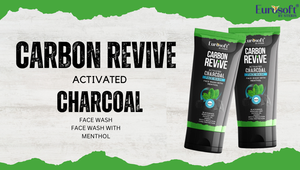Pigmentation issues, such as dark spots, age spots, and uneven skin tone, are common skin concerns. These skin problems are often caused by factors such as sun exposure, hormonal changes, acne scars, or skin irritation. While there are a multitude of commercial treatments available, natural remedies, like homemade face packs, can be just as effective, gentle on the skin, and free from harsh chemicals.
In this article, we’ll explore some of the best homemade face packs for pigmentation, how they work, and tips for getting the most out of your skincare routine.
Why Choose Homemade Face Packs for Pigmentation?
Homemade face packs offer several benefits:
- Natural Ingredients: These packs are made from ingredients found in your kitchen, like honey, turmeric, lemon, and yogurt, that contain active properties to reduce pigmentation.
- Gentle on Skin: They are often free from chemicals and artificial fragrances, making them safe for most skin types, even sensitive skin.
- Cost-Effective: Natural face packs are budget-friendly and can be prepared at home, avoiding the need to spend money on expensive treatments.
- Customizable: You can mix and match ingredients according to your skin's needs, which can help target specific concerns.
Let’s dive into some effective homemade face packs to combat pigmentation.
Top Homemade Face Packs for Pigmentation

1. Turmeric and Honey Face Pack
Why it works:
Turmeric has natural anti-inflammatory and skin-brightening properties, while honey is a natural humectant that nourishes and hydrates the skin. Both ingredients help lighten pigmentation and even out skin tone.
Ingredients:
- 1 teaspoon turmeric powder
- 2 tablespoons honey
How to Use:
- Mix the turmeric powder and honey until you get a smooth paste.
- Apply this paste to your face, focusing on the pigmented areas.
- Leave it on for 15-20 minutes and then wash off with lukewarm water.
Frequency:
Apply this mask 2-3 times a week for best results.
2. Aloe Vera and Lemon Juice Face Pack
Why it works:
Aloe vera has healing properties and can lighten dark spots over time, while lemon juice acts as a natural bleaching agent due to its high vitamin C content, which helps fade pigmentation.
Ingredients:
- 2 tablespoons aloe vera gel
- 1 tablespoon fresh lemon juice
How to Use:
- Extract fresh aloe vera gel and mix it with lemon juice.
- Apply the mixture to your face and leave it on for about 20 minutes.
- Rinse with cool water.
Frequency:
Use this pack 2-3 times a week, as lemon juice can make the skin sensitive to sunlight.
3. Gram Flour and Turmeric Face Pack
Why it works:
Gram flour (besan) is known for its exfoliating properties, which help to remove dead skin cells and lighten pigmentation. Turmeric aids in reducing dark spots, while the combination of both ingredients brightens the skin.
Ingredients:
- 2 tablespoons gram flour (besan)
- A pinch of turmeric powder
- 2 tablespoons milk or water
How to Use:
- Mix gram flour, turmeric, and milk (or water) to form a thick paste.
- Apply the paste evenly on your face and allow it to dry for 15-20 minutes.
- Scrub your face gently in circular motions and rinse off with lukewarm water.
Frequency:
Use this face pack once a week for exfoliation and pigmentation treatment.

4. Papaya and Honey Face Pack
Why it works:
Papaya contains an enzyme called papain, which helps in the regeneration of skin cells, and can help lighten dark spots. Honey's moisturizing properties work to soften and brighten the skin.
Ingredients:
- 1/2 ripe papaya
- 1 tablespoon honey
How to Use:
- Mash the papaya into a smooth paste and mix it with honey.
- Apply the paste to your face, and leave it on for 20 minutes.
- Rinse off with lukewarm water.
Frequency:
Apply this mask twice a week for pigmentation reduction.
5. Cucumber and Mint Face Pack
Why it works:
Cucumber cools and soothes the skin, reducing pigmentation caused by sun exposure. Mint leaves are rich in antioxidants that help in improving skin tone and reducing dark spots.
Ingredients:
- 1 tablespoon cucumber juice
- 1 tablespoon fresh mint leaves paste
How to Use:
- Blend the mint leaves to make a paste.
- Mix it with cucumber juice and apply it to your face.
- Leave the pack for 15-20 minutes and then wash off with water.
Frequency:
Use this face pack 2-3 times a week for cooling effects and pigmentation lightening.
6. Yoghurt and Lemon Face Pack
Why it works:
Yogurt contains lactic acid, which gently exfoliates the skin and reduces the appearance of dark spots. Combined with the vitamin C in lemon juice, this face pack helps brighten the skin and even out pigmentation.
Ingredients:
- 2 tablespoons yogurt
- 1 teaspoon lemon juice
How to Use:
- Mix the yogurt and lemon juice to form a smooth paste.
- Apply the paste to the affected areas of your face.
- Leave it on for 20 minutes before rinsing with lukewarm water.
Frequency:
Use this mask 2-3 times a week for brighter skin.
Tips for Getting the Most Out of Homemade Face Packs for Pigmentation
- Patch Test First: Before applying any face pack, do a patch test to ensure you're not allergic to any of the ingredients.
- Consistency is Key: Homemade packs take time to show results, so be patient and use them regularly for the best outcomes.
- Sunscreen Protection: Always apply sunscreen with at least SPF 30 when going outdoors, as pigmentation can worsen with sun exposure.
- Healthy Diet: A diet rich in antioxidants, vitamins, and minerals can help improve your skin from the inside out. Drink plenty of water to keep your skin hydrated.
Conclusion
Homemade face packs for pigmentation are an easy and effective way to naturally tackle uneven skin tone, dark spots, and hyperpigmentation. The ingredients listed above are simple to use and can be found in most households. With consistency and proper care, you’ll start to see a noticeable difference in the appearance of your skin.
For More Skin Care Tips Visit Our : Eurosoft Store
Disclaimer: Professional medical advice should never be substituted by this article, which is meant purely for educational and informational purposes. For specific medical issues or care, please speak with your own doctor. The Eurosoft organization, its writer, and its editor disclaim all liability for any health consequences arising from the information included in this article. Before following any advice in these articles, readers are strongly advised to consult their physician.










